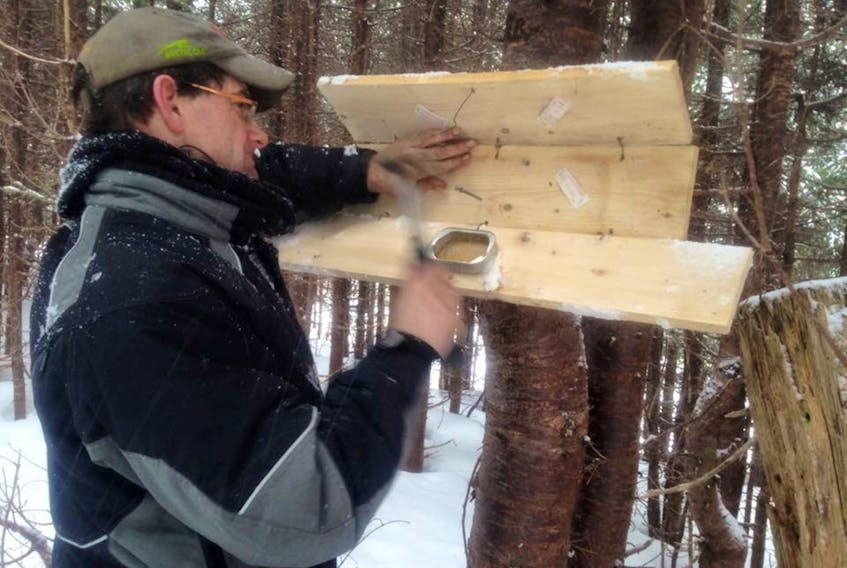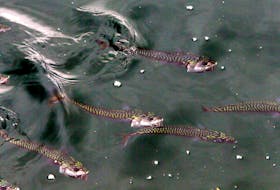While Tony Pottle, a volunteer researcher on Newfoundland Marten, acknowledges signs of recovery for the species, he has some fears, too, for the area he has been researching.
For five years now he has been putting out hair snag stations in a number of places but the 38 Trail area has received a lot of concentration from him.
The area is so named because years ago, in the early 1950s when Bowater’s logged this area, it was known as its “Camp 38.” The winding trail begins in the community of Cold Brook, and goes 40 kilometres to the community of Gallants.
Pottle’s fear is that wood harvesting is likely going to take place in the area. He believes he has already seen the signs of it.
He said roads were being worked on recently and it looks like it is being marked off for cutting right in the heart of the area of resurgence for the Newfoundland Marten.
Related stories:
Bay St. George a hotspot for pine marten on west coast
Pine marten hair snag program garnering lots of interest from the public
“If that’s what’s going to happen, it’s quite disturbing to me as a person researching the marten,” Pottle said.
He said cabin owners in the area, some who help him out in his research by setting and minding stations, also have concerns about the possible clear cutting and what it will mean for the marten.
“These little animals are so playful, mischievous and curious, yet reclusive by nature,” Pottle said.
He said seeing their status stepped up from endangered to threatened is so important but he’s still concerned about his area.
Pottle, who uses an Arctic Cat snowmobile supplied by GNR Recreation in Stephenville, sets his stations on snowshoes. The stations contain small amounts of sardine with stick pads on the walls to collect hair samples from the marten.
The samples go to the Department of Wildlife, whose scientists carry out DNA tests that gives them all kinds of information.
He puts out skunk lure in the trees and is amazed at how far the marten are able to smell it.
Pottle said he’s to the point now where he can set out the stations and be sure he will get samples; however, there are areas where he returns four, five or six times and there’s nothing, yet on the next return all of a sudden there is hair there.
Where the marten are commonly found in old growth forest, Pottle is now slowly working his way to the Whaleback area and is getting more hits on the hair. He is looking to find the fringes of where the marten are located — the perimeter of where they are and where they’re not located.
It’s work the Stephenville firefighter thoroughly enjoys doing because he’s amazed at these small animals, where they live and their habits.
Pottle is also amazed at how these normally reclusive animals will take to some cabin owners and hang around the area where they are located.
While he plans to continue his volunteer work, he said its heartbreaking that wood cutting may start soon in the very area he’s been carrying out his research.












